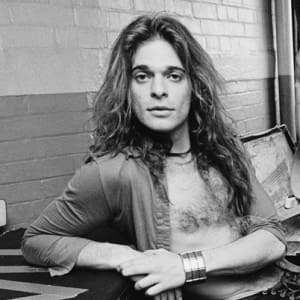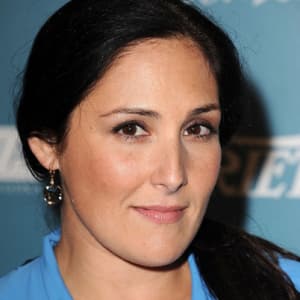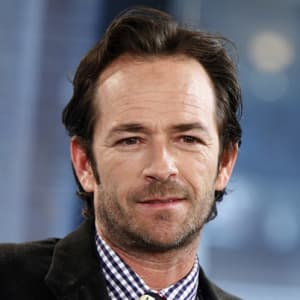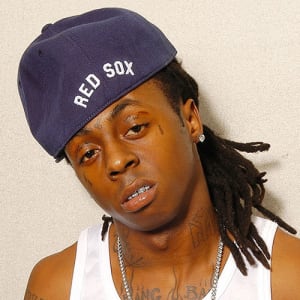
Kathleen Hanna
Kathleen Hanna is best known for being the singer of Bikini Kill and Le Tigre.
Synopsis
Kathleen Hanna was born November 12, 1968 in Portland, Oregon. At a young age Kathleen became interested in feminist literature and thought, which was helpful in much of songwriting with Bikini Kill, the successful Riot Grrrl movement. Following the break up of Bikini Kill, Hanna sang with Le Tigre.
Profile
Musician, women's rights advocate. Kathleen Hanna was born on November 12, 1968 in Portland, Oregon; her family then moved to Calverton, Maryland when she was three years old. Her father changed professions frequently, causing the family to move often—to Laurel and then Bethesda, Maryland, before moving back to Portland, where Hanna attended high school. Her mother was a housewife who also worked with local churches to counsel victims of domestic violence. Hanna was drawn to feminism at a very young age, inspired particularly by Betty Friedan's The Feminine Mystique and by the feminist publication Ms. magazine. "My mom was a housewife, and wasn't somebody that people would think of as a feminist, and when Ms. magazine came out we were incredibly inspired by it," Hanna recalled. "I used to cut pictures out of it and make posters that said 'Girls can do anything,' and stuff like that, and my mom … took me to the Solidarity Day thing, and it was the first time I had ever been in a big crowd of women yelling, and it really made me want to do it forever."
Hanna later recalled that she had three obsessions during her high school years in Portland: "1) Going to shows (punk and reggae); 2) smoking weed; and 3) drinking alcohol. Yes, it's true I was a teenage lush/burn-out, constantly on suspension or being put into special 'get off drugs' classes at school." At the age of 15, Hanna got pregnant and decided to have an abortion—a transformative life event that she said shaped her worldview. "Having an abortion was one of the best things I ever did," Hanna frankly declared in an interview with Salon magazine. "It was one of the first things I did on my own; I worked at McDonald's, raised the money and did it. I'm really, really passionate about pro-choice, because I wouldn't be here talking to you right now if I'd had a kid at 15." After graduating from high school in 1986, Hanna attended Evergreen State College in Olympia, Washington, where she studied photography. She had a work-study job in the darkroom and also briefly worked as a stripper to pay for her education.
In 1988, while still in college, Hanna and several friends started a women's art gallery in downtown Olympia, calling it Reko Muse. The gallery frequently hosted performances by local bands, and Hanna and her two co-founders started a feminist punk rock band named Amy Carter, presumably after President Jimmy Carter's daughter. Although she had been initially drawn to spoken word poetry as an artistic medium for expressing her views on feminism, she switched her focus to music after a conversation with feminist writer Kathy Acker. When Acker asked Hanna why she did performance poetry, Hanna responded, "Because I felt like I'd never been listened to and I had a lot to say." Acker's response: "Then why are you doing spoken word—no one goes to spoken word shows! You should get in a band."
In 1990, Hanna formed another band, Viva Knievel, and embarked on a whirlwind two-month North American tour. Returning to Olympia that fall, Hanna (vocalist and primary songwriter) teamed up with guitarist Billy Karren, drummer Tobi Vail and bassist Kathi Wilcox to form the soon-to-be iconic band Bikini Kill. Signing with the independent record label Kill Rock Stars, over the next eight years Bikini Kill would become the most prominent exponent of what is known as the "Riot Grrrl" movement—a catchall term for 1990s punk rock bands identified with radical politics and third wave feminism. Bikini Kill recorded two full-length albums, Pussy Whipped (1993) and Reject All American (1996). Several of their singles, such as "Rebel Girl," "The Anti-Pleasure Dissertation" and "I Like Fucking/I Hate Danger," became underground feminist anthems.
Despite the message of their music, Bikini Kill still faced significant sexism in the male-dominated world of 1990s punk rock. "It was hard being in a feminist band in the early 90s," Hanna said. "People could be really mean and unforgiving towards us. I still have people, mostly guys, coming up to me repeating the same backhanded compliment I've heard for over 10 years, 'Wow you are such a nice person, I heard you were such a bitch.' I mean it's hard enough to be a girl in a band doing sound-checks in all-male settings, but having the 'bitch' label proceed me to nearly every club got really tiring." Bikini Kill disbanded in 1998.
In 1997, as a side project while on hiatus from Bikini Kill, Hanna recorded a solo album called Julie Ruin, winning critical plaudits for its feminist and anti-domestic violence themes. A year later, following Bikini Kill's breakup, Hanna joined forces with Johanna Fateman and JD Samson to form an electronica trio called Le Tigre, releasing a self-titled debut album in 1999 and followed by The Feminist Sweepstakes two years later. Le Tigre then signed with Universal Records and their released This Island, Le Tigre's third album and Hanna's first ever on a major record label, in 2004. Although Le Tigre has not released another album since This Island, the act continues to tour.
Hanna married Adam Horovitz, better known as Ad-Rock of the Beastie Boys, in 2006.
As the primary songwriter of the definitive feminist punk rock bands Bikini Kill and Le Tigre, as well as one of the most prominent artists associated with the 1990s Riot Grrrl movement, Kathleen Hanna stands out as one of the most important feminist musicians of recent decades. And as her fame and popularity continue to grow, Hanna is relishing the opportunity to serve as an alternative role model to mainstream female pop stars. "I get a lot of letters that are like 'You're my role model, you're my idol, you're a goddess,' and when I get them it feels really good," she says. "I try to be present in the moment and think, wow, I was a bridge into something for this person, and that's one of the most amazing things I can be."




